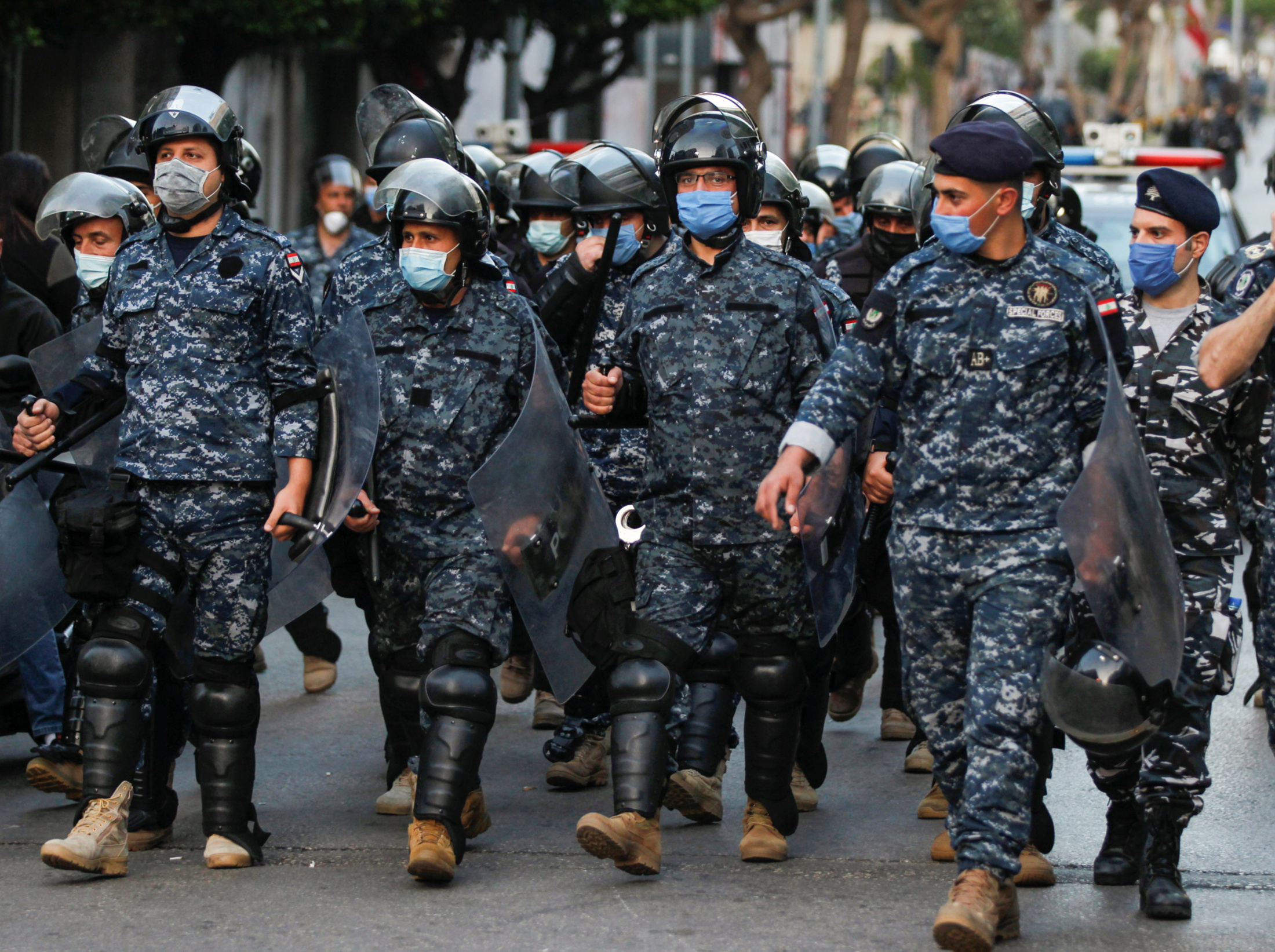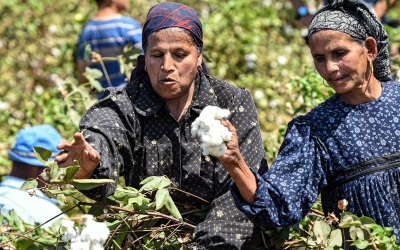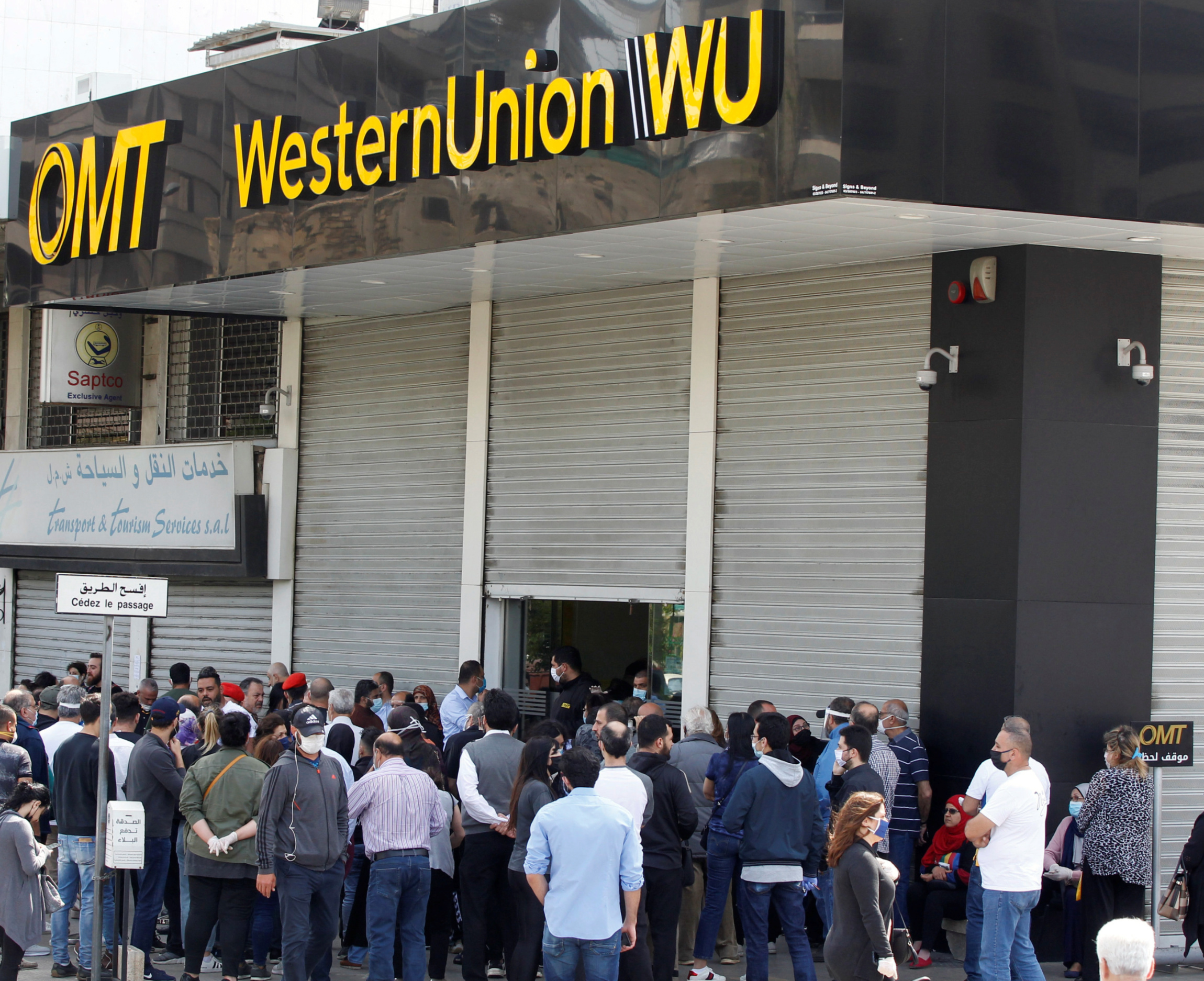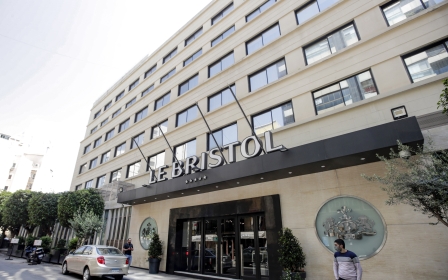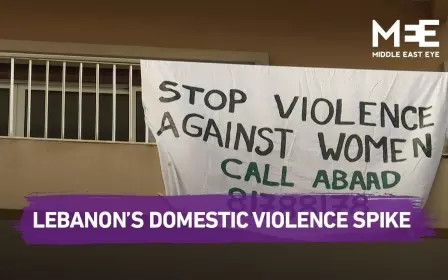'I’ll set myself on fire!': Lebanon roils as currency crisis reaches all-time low
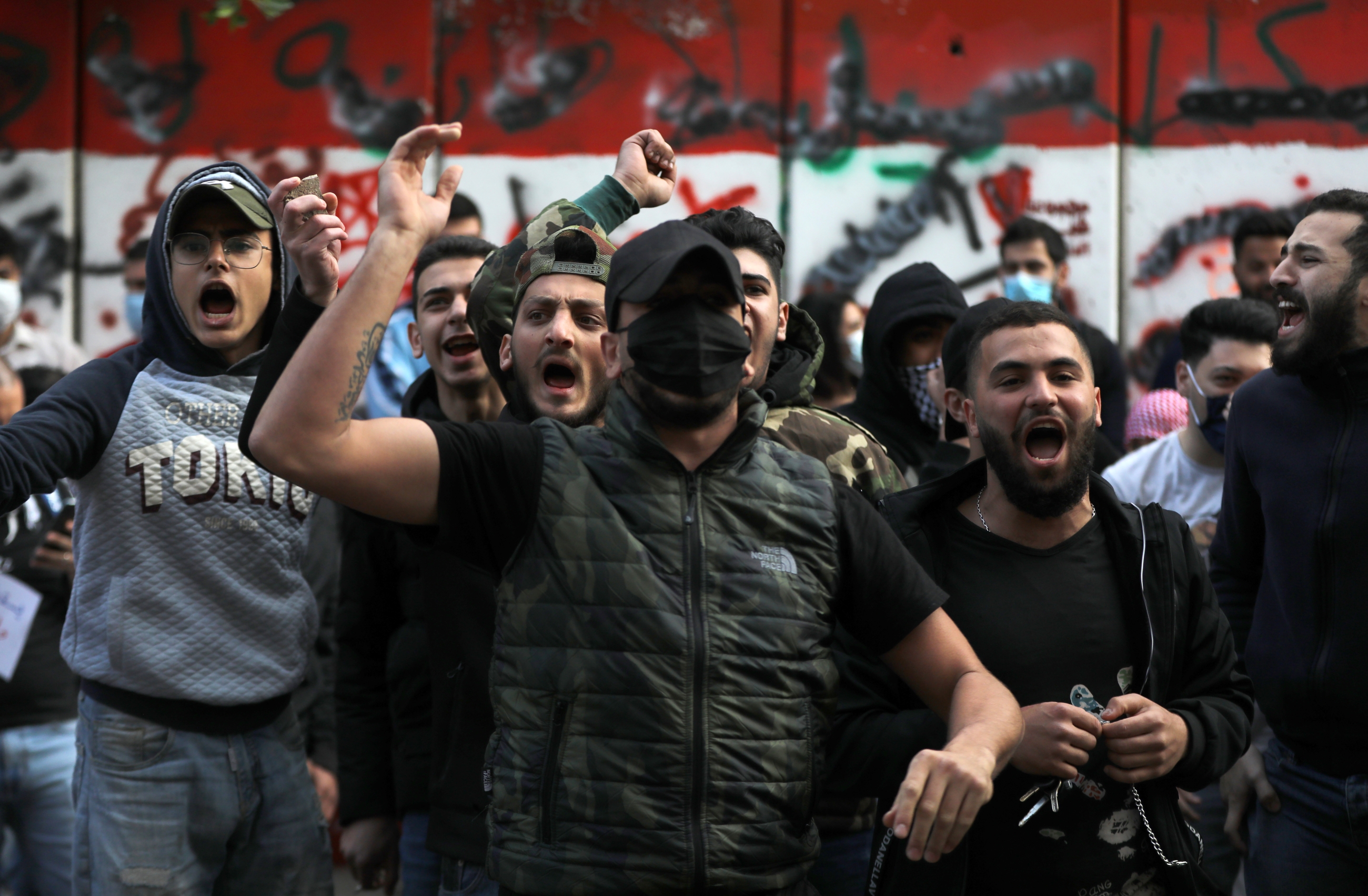
“If the army tries to forcefully open this road, I’ll set myself on fire!” a man yelled, standing at a burning roadblock on the Beirut-Sidon Highway, kerosene bottle in hand.
Familiar scenes of popular anger have returned to Lebanon’s streets, with people breaking a coronavirus lockdown to protest the ever-worsening economic conditions as the local currency fell to a new low, losing more than 50 percent of its value in recent weeks.
“It’s 4000 [Lebanese lira] to the dollar!” he cried out in disbelief shared by Lebanese across the country already suffering to make ends meet.
The value of Lebanon’s freefalling currency recorded its biggest drop in a single day, as it approached 4,000 lira to the US dollar, contrasting with an official pegged rate of LL1,507 that has been in decline since September.
But the current decline has been anything but gradual, with the value of the lira hitting 3,000 less than two weeks ago, and reaching LL3,800 to the dollar on Thursday.
New MEE newsletter: Jerusalem Dispatch
Sign up to get the latest insights and analysis on Israel-Palestine, alongside Turkey Unpacked and other MEE newsletters
More than 220,000 jobs in the private sector have been lost since mid-October when protests erupted against the political elite, according to a survey conducted by Infopro in February.
Khouloud Fawaz in Beirut has been unable to find work for almost six months now. But with the Lebanese currency in a downward spiral, she says the feeling of numbness she’s been feeling during the coronavirus lockdown has turned into renewed anger.
“As the currency was going down, the value of my mom’s minimum wage salary was also going down,” Fawaz told Middle East Eye. “An hour later, a call for protest was circulating.”
Fawaz joined a few hundred protesters gathering in front of the central bank’s headquarters off Beirut’s Hamra Street.
Social distancing and other Covid-19 measures were cast aside, as they spray-painted slogans against the government and central bank on walls, while some smashed bank windows.
Riot police – this time donning surgical masks – were present, before Lebanese Army soldiers joined in.
By nighttime, protests had erupted in Tripoli and Saida, as well as Taalabaya and other towns in the eastern Bekaa province.
Clashes with security forces in Saida and with the army across the Bekaa went on into the night.
Infamous roadblocks on major highways, fortified with burning dumpsters and tyres were back in full-force.
Unfair distribution of losses
Obeida Takriti in Tripoli, a member of the independent political party Citizens Within a State and founder of the “Square and Space” discussion group, said additional financial burdens due to the Covid-19 outbreak have compounded misery for the country’s poorest.
“[You have] an economic collapse and an unfair distribution of losses,” Takriti told MEE over the phone, explaining that living conditions continue to severely worsen for the poor and what is left of the shrinking middle class.
Even exchange shops in Lebanon have closed until Monday protesting the “insane chaos” of the exchange rate.
Lebanon has already been going through arguably the worst financial crisis in its history, sparking a nationwide popular uprising last October.
One of the most indebted countries in the world, it defaulted on its extravagant foreign debts just last month. On top of that, a US dollar shortage has worsened an existing import crisis that has restricted the country from bringing in sufficient life-saving medicines, essential food items such as wheat, and fuel.
The Covid-19 outbreak, though its spread has thus far been far from catastrophic in Lebanon, was another sucker-punch to its economy, already on its last legs.
The country’s restaurant syndicate called it a “knockout blow”, having already faced massive closures and layoffs before the virus crisis.
At the same time, skyrocketing food prices with ineffective government oversight have left many wondering whether a food security crisis is approaching in Lebanon.
Sheer anger
Unlike the protests last autumn, the latest round of protests in Lebanon is void of celebration - even in Tripoli, Lebanon’s second-largest city.
Once dubbed Lebanon’s “bride of the revolution” for its squares jam-packed with people chanting against the government to loud music, the protests in Tripoli over the past week have been fuelled by sheer anger.
“Our unemployment and poverty rates have reached 60 percent,” Bassem Bakhash from Tripoli’s municipal council told MEE. “I’m talking about before the revolution.”
Protestors in Tripoli have ignored Lebanon’s general mobilisation, social restrictions and night curfew, calling over the past week for government compensation and for their businesses to reopen.
'I am feeling anxious about this current stage: collapse'
- Bassem Bakhash, a Tripoli municipal council member
Many would gather in Nour Square, the main protest point during the October uprising, while others would protest near the residences of the city’s business magnates and political leaders – some of the wealthiest and most powerful in Lebanon.
Their argument was simple: they would rather die from the fatal coronavirus than from hunger.
“I think if it weren’t for the coronavirus, people would have flooded the streets,” Bakhash told MEE hours before protests erupted on Thursday.
Tripoli-based researcher May Tamimova described the economic situation as a “nightmare”, adding that many workers have refused to abide by state-enforced closures.
“The souks, such as the vegetable market, which one could say is one of the most important centres of Tripoli’s economy, has had trouble closing down, with many vendors getting into skirmishes with security forces,” Tamimova told MEE, adding that shops have been closing over the past year, but at a far more alarming rate recently.
“People are forced to go to the streets to make their living,” she said referring to street vendors and market workers.
Bakhash said that while many people complied with the closures – some following inspections by security forces and intelligence agencies – they soon took a step back from the restrictions, given the deteriorating situation.
“We had to let go of them…and we know the security forces and mukhabarat [General Security Directorate] did the same,” he admitted.
“The syndicate heads couldn’t convince them [to close down] either.”
A ticking time bomb
Human Rights Watch has previously told MEE that the Lebanese government’s response to the bludgeoning socioeconomic impact of the Covid-19 outbreak as “uncoordinated and inadequate”.
Lebanon has been struggling to distribute a one-time LL400,000 payment to vulnerable families over the past month. The value of this payment has since declined from almost $150 to just over $100.
But the planned distribution has since been indefinitely postponed due to “errors” in the list of families, and was transferred to the army to be vetted.
The cabinet introduced a more comprehensive plan that also included zero-interest loans to small businesses and the self-employed, in addition to a cash assistance scheme to be voted on in Parliament on Wednesday.
However, with many MPs having already left before the vote on the aid plan started, the rest of the session was cancelled, as quorum could not be established. A scheduled session the following day was also cancelled.
In Tripoli, Bakhash said the municipality is trying to soften the blow – but even that is not enough.
In agreement with “a long list of grocery stores” they distributed 40,000 coupons worth LL75,000 – a little less than $20.
“We saw that so many people were fighting over these coupons,” Bakhash said with a sigh.
“We then further invested to distribute another 12,000 coupons. But this is still not enough.”
All this ironically took place while protesters in car convoys from across Lebanon drove through Beirut calling for new laws to implement socioeconomic support schemes and transparency and accountability mechanisms.
Postdoctoral research fellow in banking and finance at University College Dublin, Mohammad Faour, told MEE that all the events that continue to unfold have inevitably sparked renewed protests.
“It speaks up to parliament insisting on its 'business as usual' approach and not realising the gravity of the situation here,” Faour told MEE.
“The fact that a quorum was not established for the aid plan despite the socioeconomic ticking time bomb shows that they don't really seem to be too concerned.”
Faour has expressed concern about recent central bank circulars that are haphazardly pushing Lebanon towards “lirafication” – or a move away from the US currency – at a time where the local currency’s value continues to worsen.
In one notable circular released earlier this week, the central bank said depositors with dollar accounts would be paid cash in Lebanese lira at a “market rate” set daily by their banks, within each bank's withdrawal limits.
On Friday, the Lebanese central bank set an exchange rate of LL3,625 per dollar to be applied by money-transfer firms, a central bank source told Reuters, 58 percent weaker than the official peg.
When asked if hyperinflation is something that should be of concern, Faour simply said “of course”.
Meanwhile, Takriti believes that the situation has become beyond the control of the government.
“I am feeling anxious about this current stage: collapse,” Takriti told MEE.
“This is an opportunity for Lebanon to bring about a new system that will allow us to build a better future…but that doesn’t mean this next stage won’t be very difficult.”
Middle East Eye delivers independent and unrivalled coverage and analysis of the Middle East, North Africa and beyond. To learn more about republishing this content and the associated fees, please fill out this form. More about MEE can be found here.


